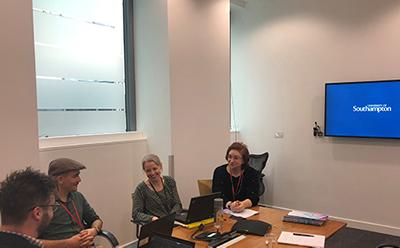
Project outline
Low cost sensors hold potential to improve awareness of poor indoor air quality and inform occupant actions towards healthier and more productive offices. This was a one of several recommendations made in a two-part report handed over to the Department for Environment, Food and Rural Affairs (Defra) by ECS researcher Stephen Snow. Facilitated by Public Policy|Southampton’s Gareth Giles, Stephen’s research into the social and behavioural factors affecting indoor air quality in offices has been leveraged to address Defra’s interest in indoor air quality, a leading cause of health effects and cognitive performance, but which has until recently taken a back seat to the more headline-catching concerns over outdoor air quality.
The report focuses on the sphere of influence of occupants themselves with respect to indoor air quality, rather than on engineering solutions or building performance factors over which users have no control. The research suggests that
- Low cost sensors offer promise for informing healthier ventilation actions
- Such sensors should be ambient, glance-able, unobtrusive, provide immediately actionable information, and offer human analogies for the quantifications
- IAQ awareness campaigns might additionally focus on prompts for regular and active breaks from seated office work, and
- Insight into applicable behavioural models to guide future interventions.
As part of a secondment facilitated through Public Policy|Southampton and EPSRC Impact Accelerator Account, Stephen has had the opportunity to draw upon and expand his existing research as part of the REFRESH Project (PI: m.c. schraefel) into how social factors can affect interactions with building controls such as windows and radiators (Snow et al. 2016 and Snow et al. 2017) and the design of office-based IAQ monitors (paper currently under consideration).
Building on this collaboration, the next steps identified are explore opportunities for collaboration on future funding bids with London City Corporation, Public Health England and Defra.